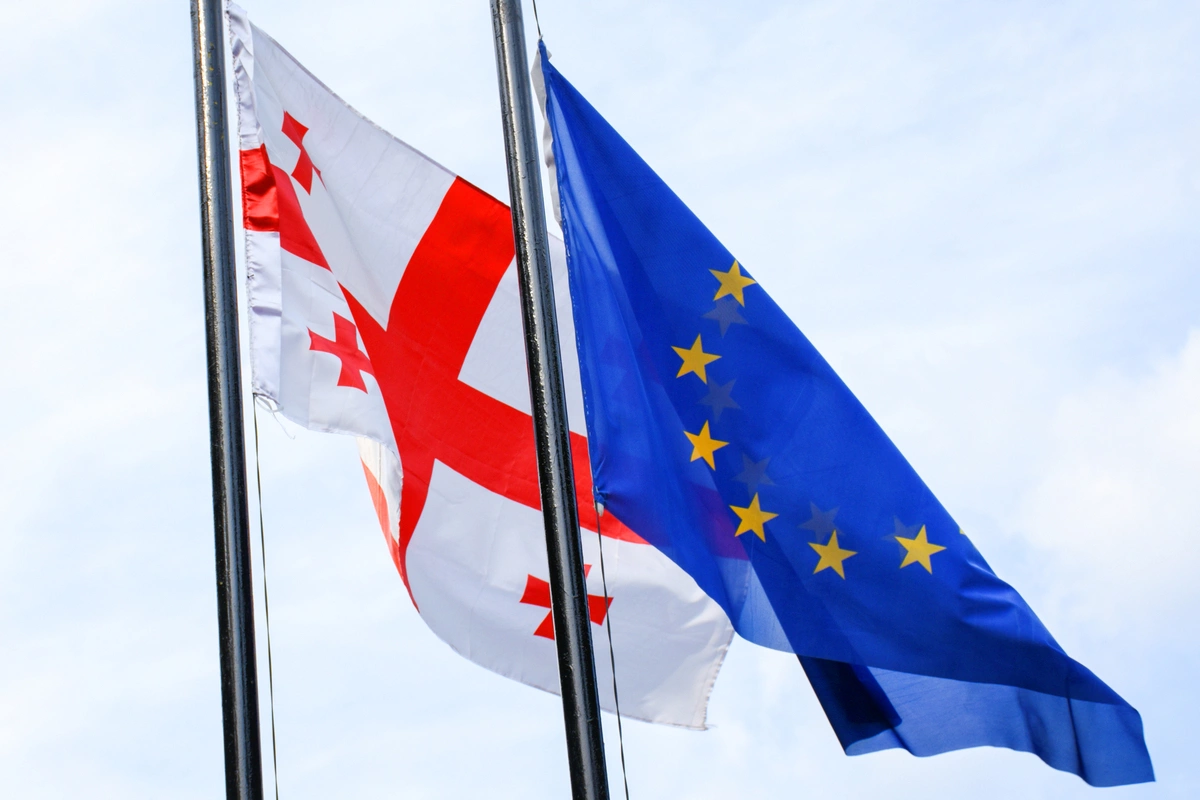
The European Commission has recommended that the EU grant Georgia candidate status, paving the way for the bloc to begin the country’s accession process at the EU Council meeting later in December.
Image: Aleks822/Shutterstock
(OC Media) Announcing the decision on Wednesday, President of the Commission, Ursula von der Leyen said the commission ‘fully supports the genuine aspirations of the overwhelming majority of [Georgia’s] citizens to join the EU but that ‘these aspirations need to be better mirrored by the authorities.’
If the EU Council follows the recommendation, as it is widely expected to, it would be a reversal of the bloc’s previous decision almost 17 months ago to deny Georgia candidate status while granting it to Ukraine and Moldova.
The two countries applied for membership in the wake of Russia’s full-scale invasion of Ukraine, with the Georgian government reluctantly following suit after facing public pressure to do so. On Wednesday, the commission also recommended opening accession talks with Ukraine and Moldova, which would keep them one step ahead of Georgia in joining the bloc.
In place of membership candidacy, the EU gave the Georgian Government 12 ‘priorities’ to fulfil before its candidacy would be reconsidered.
Wednesday’s recommendation comes despite local civil society groups insisting that the government had failed to address most of the reforms requested of them, including ‘de-oligarchization’, judicial reforms, and improving the freedom of the press.
Announcing the decision, von der Leyen said they were recommending Georgian candidacy ‘on the understanding that the government takes important reform steps.’
She called on the government to ‘engage more with the opposition and civil society on matters of national interest.’
She also praised what she said were ‘a number of positive steps’ taken by the government, on opposition scrutiny on the work of parliament, an ‘action plan for de-oligarchisation’, and that a ‘personalised approach’ to the anti-corruption bureau was withdrawn.
Share on social media